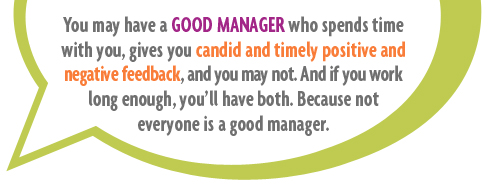How to Ask For Feedback | Surround Yourself with People Who Will Tell You the Truth
The people in your life are not inclined to tell you the truth. In fact, they’ve been trained not to. Every time your friends, family, and coworkers told the truth (as they saw it) and the recipient responded defensively, their brains got trained –it’s not safe to tell the truth. So they stopped doing it.

Gossip damages relationships and tears families and organizations apart. But gossiping about the things that frustrate us feels easier and safer than talking to the offender directly when we anticipate resistance.
We have all watched our friends at work wear clothing that wasn’t the best choice, over speak in meetings, and make other career-limiting moves. And we said nothing. Because we felt it wasn’t our place to say something, or the input was not invited nor welcome.

If you want to be successful at work and for your career to grow, you need to surround yourself with people who will tell you the truth. These people don’t need to be your direct supervisor, the leaders in your organization, or your customers, although they may be. They can be your friends, family, and coworkers.
If you are consistently late, wear clothing that is not appropriate for work, or make commitments and then break them, your friends and family know that. Some people say they are a different person at work and at home. I don’t know that I buy that. We may exhibit different communication methods at work and at home, but our bad habits are the same.
The coworkers you sit near see and hear you work. They witness many of the good and not-so-good things you do at work that either help or damage your reputation. But they won’t tell you what those things are if you don’t ask. And even if you do ask, they still may not tell you. You have to ask for feedback and make it easy (safe) to give.
I recommend assembling what I call a Core Team of five or six people who will always tell you the truth. These are people who like and care about you. They are not the people you distrust and are struggling to work with. They may be current or past coworkers, friends from high school, college or today, and family members. These are the people who really know you and want you to be successful, and will thus tell you the truth –if you ask.
Here’s how to ask for feedback from the people in your life who care about you:
-
Pick a few people, using the criteria above, to be on your Core Team.
-
Tell them you want to get a better sense of the positive and not-so-positive things you do that may impact your reputation at work.
Here’s how you could ask for feedback:
“I am committed to my career and I want to eliminate any blind spots that may limit me. You know me well and watch me work. I would really appreciate your feedback. When you see me do anything that may limit my success, I give you permission to tell me. And if you’d like, I’ll do the same for you. I promise that no matter what you say and how hard it is to hear, I will make it easy to give me feedback and I will say thank you.”
-
Ask for specific feedback.
Examples of questions you could ask:
- What is the first impression I make?
- What’s my reputation in the office?
- What do I do that makes me good to work with?
- What do I do that makes me challenging to work with?
- If I could change one thing that would make me more successful, what would it be?
- What strengths do I have that I should use more and leverage?
-
Promise that no matter what they tell you and how difficult it is to hear, you will say thank you. And tell them you may come back to them with questions and to discuss further after you’ve processed what they said.
Saying thank you and nothing else, as you react to the feedback, which you will, makes it safe to give you feedback and more likely that you will receive feedback more than once.
There are more ways to ask for feedback and specific questions to ask in my new book, How to Say Anything to Anyone. And if you want the complete list of questions to manage your career and reputation, you can get them here.
Asking for feedback and saying thank you may sound difficult, and it can be. But it’s not as difficult as getting passed over for projects and jobs. You can do this!



